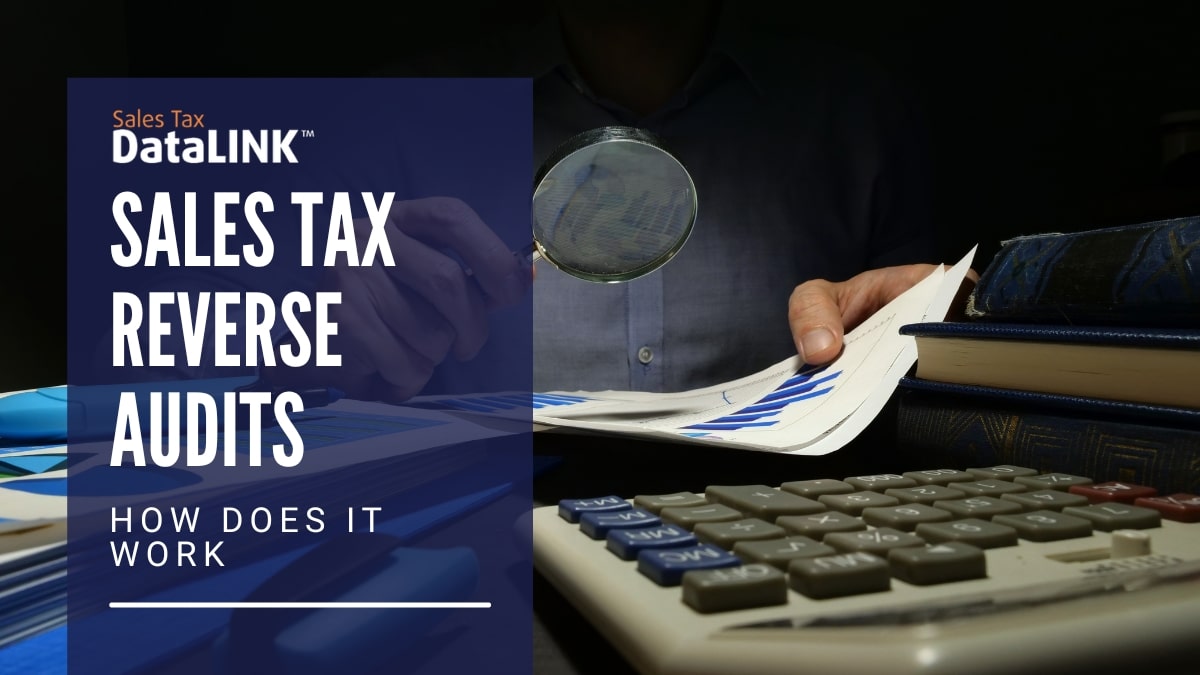ARE YOU CONFIDENT IN YOUR COMPLIANCY?
Are you confident that you are in full compliance when it comes to sales tax? A survey of accountants found that just about half were confident that their clients were in full compliance. Sales tax reverse audits are a tool to identify vulnerabilities — instead of waiting for a state audit to find those problems.
Sales tax reverse audits ensure compliance with tax regulations and identify potential overpayments or underpayments. These audits involve a comprehensive review of a company’s sales and use tax transactions and records to identify any errors or discrepancies. By conducting reverse audits, businesses can potentially recover overpaid taxes, minimize the risk of penalties and interest, and improve their overall tax management strategies.
HOW DOES A SALES TAX REVERSE AUDIT WORK?
The purpose of a reverse audit is to examine past transactions to determine if sales and use taxes have been accurately calculated, reported, and remitted. It involves a thorough examination of sales invoices, purchase receipts, exemption certificates, and other relevant documents to identify any potential tax liabilities or exemptions that may have been missed. The audit also focuses on ensuring that the correct tax rates and rules were applied based on the jurisdiction and the specific nature of the transaction.
One of the main benefits of conducting a reverse audit is the potential recovery of overpaid taxes. Businesses may uncover instances where they have mistakenly remitted excess sales and use taxes. These overpayments could result from miscalculations, misinterpretation of tax laws, or incorrect application of exemptions. By identifying these errors, businesses can file for refund claims and recover the overpaid amounts, resulting in significant cost savings.
Reverse audits also play a crucial role in minimizing the risk of penalties and interest. Tax authorities often impose penalties and interest on businesses that fail to comply with sales and use tax regulations. By proactively identifying and rectifying any non-compliance issues through reverse audits, businesses can mitigate the risk of penalties and avoid unnecessary financial burdens.
CHECK YOUR STRATEGIES
Reverse audits can also help businesses improve their tax management strategies and enhance overall compliance. By conducting regular reviews of past transactions, businesses can identify any recurring errors or areas of weakness in their tax processes. This knowledge enables you to implement corrective measures and update your systems. The result is improved accuracy in tax calculations, reporting, and remittance, leading to better compliance with tax regulations in future.
The complexity of sales and use tax laws and regulations makes it challenging for businesses to navigate the landscape effectively. Reverse audits help your business stay up to date with evolving tax laws and ensure compliance with the latest requirements. Tax rules can vary across jurisdictions, and tax rates can change periodically. A reverse audit gives you the opportunity to make sure that you are applying the correct tax rates and exemptions based on the current regulations, minimizing the risk of non-compliance.
HOW TO DO A REVERSE AUDIT
Even if you see the value of a reverse audit, it may seem like an overwhelming process. Sales Tax DataLINK’s patented software make sales tax reverse audits practical — and out Consulting Group can conduct the audit for you. Our experts give you confidence in the process and ensure that you get the most out of it. Call 479-715-4275 to discuss your needs.




